|
|
|||||
This week, we’re taking a close look at the troubling state of democracy globally and in Africa ahead of next week’s Third Summit for Democracy. 2024 is a big year for elections. But elections alone do not make a democracy. Amid global democratic backsliding, a push to democratise global institutions offers a shimmer of hope. |
|||||
|
|
|||||
Top newsDemocracy down: Nearly 3 in every 4 people globally – 5.7 billion people – live in autocracies. That’s an increase of 48% from 10 years ago. Just 29% of the world’s population lives in democracies. That’s the lowest level since 1985. Democratic backsliding in Africa accounts for part of this: only 14 African countries are democracies, and 13 African countries are growing more autocratic. But there’s a glimmer of good news: the global decline in political rights and civil liberties may be slowing.  Going through the motions: 2024 is a big election year, but democracy may need to brace itself. Democracy levels are worsening in 31 of the 60 countries holding national elections this year. Only three of those 60 countries are seeing democratic improvement, due to improvements in the freedom of association. All of them are in Eastern Europe. In Africa, only five of 17 elections in 2024 will take place in democracies. And in three of those five countries – Botswana, Senegal, and South Africa – democracy is on the decline. The reasons for these declines are multi-faceted but include reduced executive oversight, eroding rule of law, declining freedom of expression – and in the case of South Africa – growing corruption of the governing party, the African National Congress.  Source: V-Dem Institute Democracy for me, not for thee: Some international institutions like to preach about democracy but not practise it. This is reflected in the structure of prominent global institutions. The UN Security Council’s five veto-holding members (China, France, Russia, UK, US) have long resisted appeals for greater inclusion. And G7 countries control over 41% of the IMF's voting shares, despite representing less than 10% of the global population. Meanwhile, Africa (54 countries), China, and India collectively account for 53% of the world’s people yet their voting shares are just...
🚩 Africa = 6.47%  Louder calls for change: African countries are spearheading efforts to make representation in global institutions more fair. They are leading the effort to relocate global tax decisions from the OECD to the UN after repeatedly being locked out of key decisions. At last month’s AU Summit, African leaders called for greater voice and power in global decision-making bodies. The G20’s decision to include the AU reflects an obvious reality: diluting or ignoring the voices of billions of people in global decision-making bodies is morally unjustifiable and politically untenable. Maybe someday (soon) other international institutions will reach the same conclusion. 🙏 Fake influencers, real impact: Social media has altered African politics in irrevocable ways. Fake accounts, Twitter bots, and misinformation campaigns involving paid influencers have been used across Africa. In Kenya, 3,700 Twitter accounts were found to have promoted at least 11 paid disinformation campaigns attacking journalists, civil society, and public officials in 2021. Political actors in the DRC and Nigeria have funded misinformation campaigns to undermine political opponents. The Russian-run Wagner Group has used coordinated Facebook campaigns to peddle influence in at least eight African countries. These efforts have been found to impact elections and perceptions. 👀 Rise of the robots: Misinformation spread by AI is already influencing elections in Africa, and the dangers will likely get worse. Deepfake videos of politicians making incendiary statements riled up Kenya in the run to the 2022 election. AI-generated images were used in the 2023 presidential election in Nigeria to give false impressions of public support for political views. And AI was used to clone the voices of presidential candidate Atiku Abubakar and his running mate Ifeanyi Okowa allegedly conspiring to subvert the election. But AI is also being used to safeguard elections, including flagging fake content and accounts and spreading accurate information. Regulation and digital literacy will need to catch up to technology’s head start, and fast. From the ONE Team
The numbers
 |
|||||
|
|
|||||
Quote of the week
|
|||||
|
|
|||||
What you should read, watch, and listen to:
|
|||||
|
|
|||||
A look ahead18-19 March: 2024 Adaptation Forum in Bonn, Germany 18-20 March: Third Summit for Democracy in Seoul, South Korea 18-21 March: World Education Summit, virtual 19-22 March: Committee of Experts on International Cooperation in Tax Matters in New York City, US 22 March: World Water Day |
|||||
|
|
|||||
The ONE Campaign’s data.one.org provides cutting edge data and analysis on the economic, political, and social changes impacting Africa. Check it out HERE. |
|||||
|
|
|||||
|
|
|||||
Did you like today's email?Loved it Mehhh Hated it |
|||||
|
|
|||||
Did you like today's email?Loved it Mehhh Hated it |
|||||
|
|
|||||
Wie hat dir dieser Newsletter gefallen?Richtig gut! Ging so… Überhaupt nicht. |
|||||
|
|
|||||
|
|||||
|
|||||
|
|||||
|
This email was sent by ONE.ORG to test@example.com. You can unsubscribe at any time. ONE Campaign |
